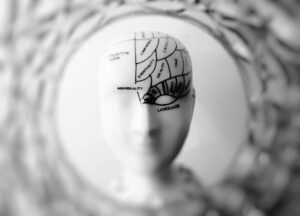Tagged: “Forgiving”
Is it true that people “Forgive and Forget”?

Image by Meo, Pexels.com
A recent set of four studies examined the extent to which people actually forget the unjust situation once they have forgiven. The reference to that work is:
Fernández-Miranda, G., Stanley, M., Murray, S., Faul, L., & De Brigard, F. (2025). The emotional impact of forgiveness on autobiographical memories of past wrongdoings. Journal of Experimental Psychology: General. Advance online publication. https://doi.org/10.1037/xge0001787
The authors made the distinction between the possibility that the memory of the event fades (what they called “episodic fading”) and what they called “emotional fading” in which the strong and negative emotions are diminished upon forgiving.
The authors, in their abstract, concluded this:
“While the episodic fading account predicts that forgiveness is associated with less vivid and detailed memories of being wronged, the emotional fading account predicts that forgiveness need not be associated with diminished episodic characteristics. Across four studies (N = 1,479, after exclusions), we found consistent support for the emotional fading account but not for the episodic fading account.”
In other words, people do not literally forget what happened once they forgive. The memory can pass through the mind and heart without the heightened negative emotions welling up.
“Forgive and forget” may need to be rephrased as “forgiving and remembering in new ways.”
‘I Forgive You’: After Decades Behind Bars for His Wife’s Murder, Leo Schofield Finds Healing in a Call with the Man Who Confessed

Image by Tyler Lastovich, Pexels.com
On April 11, 2025, The News Review (https://www.nrtoday.com/he-served-36-years-for-his-wife-s-murder-and-then-forgave-the-man-who/article_473a7a92-17a1-4b83-95e0-e353e4bcb615.html) in Oregon reported on a man, Leo Schofield, who allegedly killed his wife. He was released from a correctional institution after serving 36 years. He maintained his innocence throughout the imprisonment.
Upon being released to regular society, Mr. Schofield took about one year, and then he had a telephone conversation with the man, Jeremy Scott, who proclaimed on several occasions that he was the one who murdered Mr. Schofield’s wife. It was at that time that Mr. Schofield forgave the other man, reporting that forgiveness is a process of “being freed from the effect” of the hurt he carried inside.
Mr. Schofield seems to have gone through the process of what we call the Work Phase of forgiveness, in which he started to think about Mr. Scott in new ways, not to condone what he did, but to better understand him. As reported in The News Review, Mr. Schofield said this, “‘I developed a certain respect and somewhat of an affinity for the guy,’ he said. ‘I wanted to tell him that I genuinely forgive him and, more important, I wanted him to know that there are people that care about him and want to see him do right.’”
Dr. Robert Enright and IFI colleagues featured in recent edition of APA Journal

Image by Pixabay, Pexels.com
Robert Enright was the special issue editor for the first issue of 2025 in the American Psychological Association’s Journal of Theoretical and Philosophical Psychology. His colleagues and he published the centerpiece article on what they call the “definitional drift” in how researchers understand the moral construct of forgiveness. There are at least eight different definitions of forgiveness in the published literature, most of which are philosophically incorrect. The central article was followed by commentaries from three philosophers and three psychologists and a final comment by Robert Enright, Jichan Kim, and Jacqueline Song. The centerpiece and final article of the special issue are these:
Song, J., Enright, R.D., & Kim, J. (2025). Definitional drift within the science of forgiveness: The dangers of avoiding philosophical analyses. Journal of Theoretical and Philosophical Psychology, 45(1), 3-24. Note: This is the centerpiece article for a special issue on the definition of forgiveness within psychology. doi: https://doi.org/10.1037/teo0000278
Enright, R.D., Kim, J., & Song, J. (2025). Our hope that definitional drift in forgiveness will cease from drifting: Our comments on the six commentaries. Journal of Theoretical and Philosophical Psychology, 45(1), 65-71. doi: https://doi.org/10.1037/teo0000306
Dr. Enright Gives Keynote Address at Restorative Justice Conference

Dr. Robert Enright
Dr. Robert Enright gave the keynote address at the national restorative justice conference, Embracing the Circle Conference, at Stranmillis University College, Belfast, Northern Ireland, on February 5, 2025. The address was entitled Developing teachers and students as transmitters of forgiveness. One of his main points is that restorative justice primarily is centered on dialogue. Yet, if students or adults are dialoguing with resentment in the heart, then the conversation likely will be less effective than when people have forgiving and, therefore, compassionate hearts. In other words, people can be civil when they are face-to-face at a peace table, but if there is deep anger in the heart, this can fester once those who are dialoguing leave the table. He encouraged those who emphasize restorative justice to consider changing hearts prior to meeting for dialogue. That conversation might bear more fruit between and among people.
Husband says he begged God to forgive his wife after she killed her four children and herself

Image by Raphael Brasileiro, Pexels.com
On February 19 of this year, Gina Vivinetto on the website Today (https://www.today.com/parents/tranyelle-harshman-murder-suicide-kids-rcna192839) reported on a tragic murder and suicide by a woman and her four children. The woman was suffering from both postpartum depression and post-traumatic stress disorder (PTSD). The husband, Cliff Harshman, in an act of heroism, reported that he “begged God to forgive her” as Tranyelle was lying on her hospital bed. He said that he does not view her “as a monster” because she was both a loving wife and mother. He reflected on his wife’s struggles over the past five years, concluding that she was very troubled and was unable to overcome the psychological challenges.



